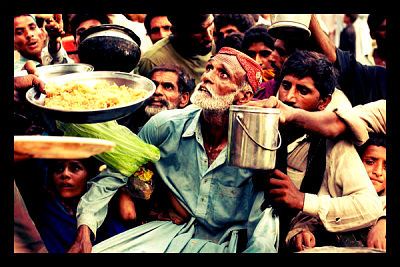
Pakistan has always been a polarized society but four years of Imran Khan and his politics have left political discourse deeply polarized. At a recent conference organized by the Human Rights Commission of Pakistan (HRCP), speakers expressed concern “at the alarming polarization in political discourse, which is detrimental to the cause of democracy, supremacy of parliament and constitutionalism. It is equally concerned about the ensuing economic instability, the runaway inflation and the threat of food insecurity that are disproportionately impacting the working and middle classes.”
The HRCP conference sought “a non-partisan consensus on crucial issues facing the country.” This was the only way the country would be able to deal with the “grave human rights issues being faced by the populace, including the impact of climate change evident in the recent glacial flooding in Gilgit-Baltistan, the ongoing heatwave in Punjab, the acute water shortages in Sindh and Balochistan, leading to provincial conflicts, displacement and loss of livelihoods.”
HRCP also noted “the worsening instances of police brutality against peaceful protestors across Pakistan with arrests of activists and political workers on anti-state charges becoming a common feature. Freedom of press is in continuous stress and journalists have been persistently targeted. The state must uphold people’s rights to freedom of expression, association and peaceful assembly instead of retaliating with unwarranted violence.”
Further, HRCP alarmingly noted “there is no letup in cases of enforced disappearances, particularly in Balochistan, Sindh and KP. What is worse is the uptick in enforced disappearances of Baloch and Pashtun students. It reiterates its demand to enact the law that criminalises enforced disappearances and the state must ratify the International Convention for the Protection of All Persons from Enforced Disappearance.”
Furthermore, “The promise to grant Gilgit-Baltistan provincial status must be fulfilled. The Council criticised the ‘discreet talks’ with militant groups in Afghanistan without taking the parliament into confidence. HRCP also demands that the state accede to the 1951 Refugee Convention and its 1967 Protocol, and pass legislation for refugees’ rights.”
Finally, “violence against women and transgender persons showed no signs of abating. Religious and sectarian minorities remain vulnerable, with incidents such as the mob lynchings in Sialkot and Mian Channu, the attack against Shia worshippers in Peshawar, and desecration of Ahmadiyya graves, becoming more frequent. HRCP calls on the state to curb the rising tide of religious extremism, and grant the National Commission for Minorities a statutory position in light of the Tassaduq Jillani Supreme Court judgement 2014 so it may fulfil its duties.”
![]()





